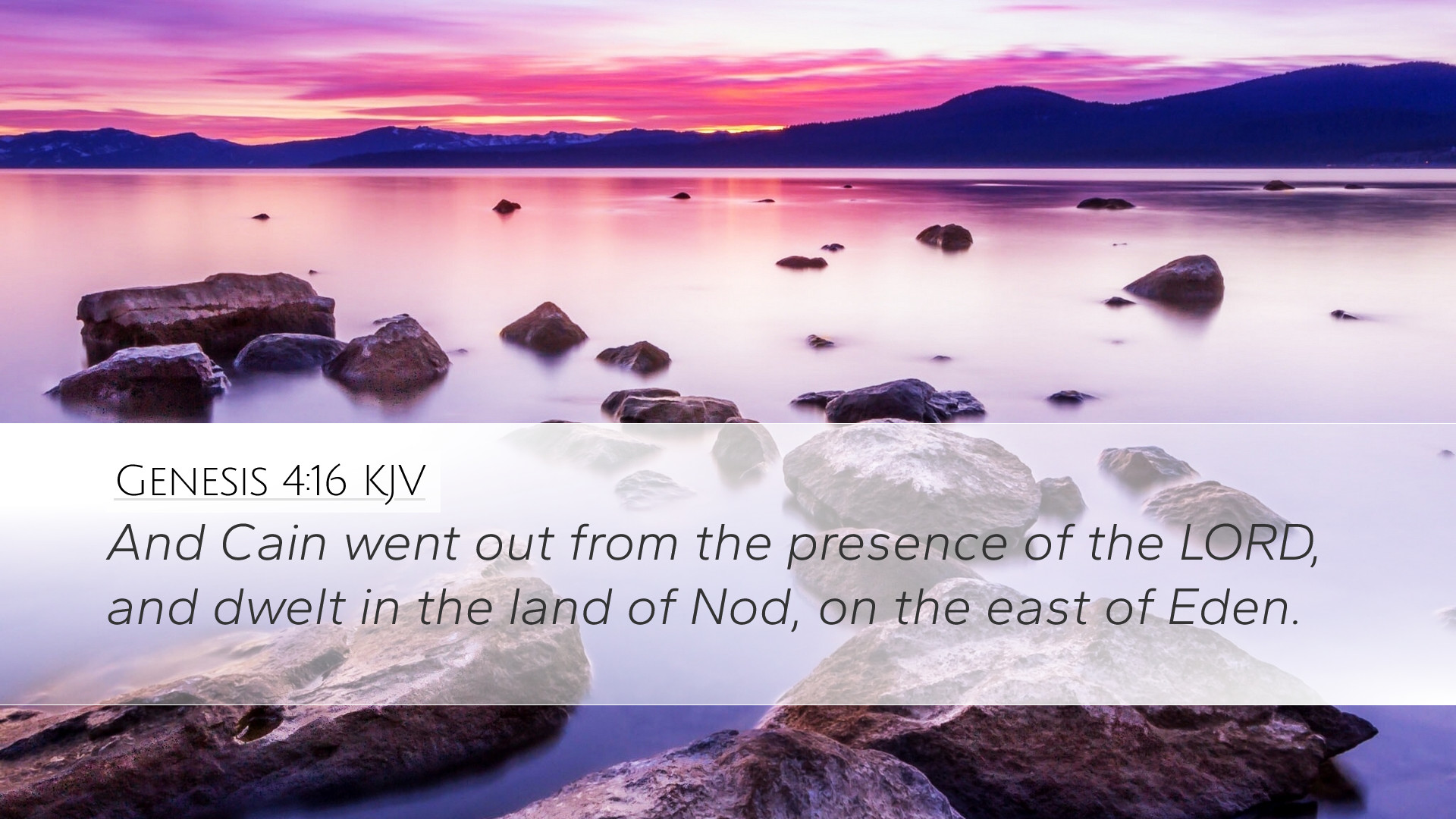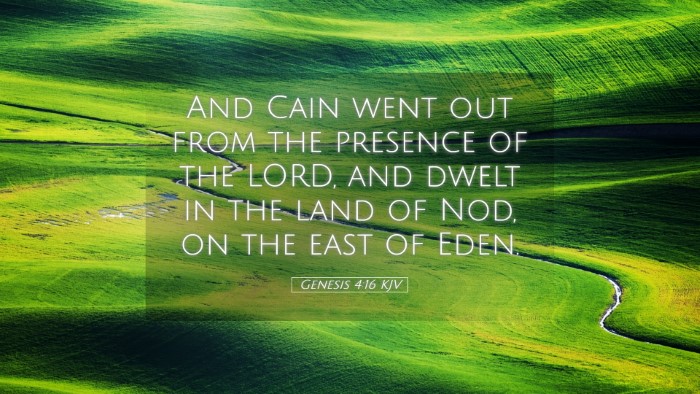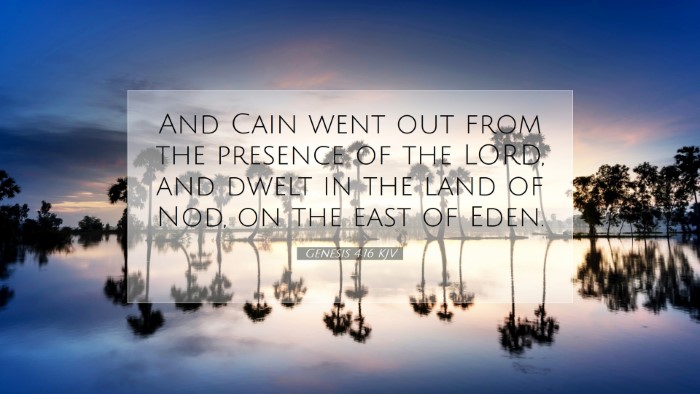Commentary on Genesis 4:16
Genesis 4:16 states: "And Cain went out from the presence of the Lord, and dwelt in the land of Nod, on the east of Eden." This verse marks a pivotal moment in the biblical narrative, highlighting themes of alienation, consequence, and the human condition.
Historical Context
The context of Genesis 4 reflects the early fallout of the Fall of Man. The once harmonious relationship between God and His creation begins to unravel, notably after Cain's murder of his brother Abel, creating a profound schism. In this light, Cain's departure from the presence of the Lord signifies a tragic choice fueled by guilt and remorse.
Theological Implications
This verse serves as a multi-faceted illustration of God's justice and mercy:
- Divine Judgment: Cain's exiling reflects not only the consequences of sin but also the nature of God's judgment. It is a reminder that sin leads to separation from God.
- Mercy over Despair: Although Cain is marked for his crime, God's protective measure over him serves to show that even in punishment, God extends mercy and allows for a continuation of life.
Commentary Insights
According to Matthew Henry, Cain's departure indicates a moral and spiritual decline. Henry emphasizes that Cain's exile symbolizes a self-chosen distance from God. He interprets the land of Nod as a place marked by wandering, which reflects Cain’s inner turmoil and loss of direction.
Albert Barnes mirrors this sentiment by noting that the term “Nod” translates to “wandering,” implying that Cain's choice to dwell there embodies not merely a physical relocation, but a spiritual state of restlessness. Barnes highlights how this wandering condition is reflective of the lives of those distanced from God, suggesting that such separation yields a life devoid of peace.
Adam Clarke offers a broader historical perspective, positing that Cain's lineage and his settlement in Nod represent early human society's fragmentation. Clarke suggests that the effects of sin permeate societies, indicating that Cain’s actions initiated a legacy of disobedience and moral decay that echoes through history.
Practical Applications
This narrative carries profound lessons for contemporary believers. Here are some avenues of reflection:
- Consequences of Sin: Cain's story is a cautionary tale about the ramifications of sin. Believers should contemplate the impact of their choices on their relationship with God and with others.
- God's Persistent Grace: Even amid discipline, God’s grace is evident. This serves as a beautiful reminder of God’s unfailing commitment to restoration, even when our actions seem irreparable.
- The Search for Meaning: Just as Cain wandered, individuals often find themselves searching for purpose in their lives. This reflects the universal quest for significance that all believers must navigate.
Conclusion
Genesis 4:16 is not merely a historical record; it is a theological reflection that challenges us to examine our own lives in light of Cain's choices. The narrative encourages a deeper understanding of how sin fractures our relationship with God, the importance of seeking His presence, and the underlying truth that no matter how far we may wander, God’s grace and the opportunity for reconciliation remain within reach.


